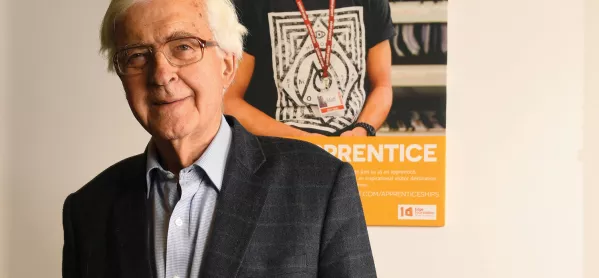A war of words has broken out between two former Conservative education secretaries over the success of university technical colleges.
Lord Baker, who served under Margaret Thatcher, accused his successor Michael Gove of talking “ill-informed rubbish” in a Times column, which last week claimed the technical institutions for 14 to 19-year-olds had “all gone Pete Tong”.
It had followed the announcement that a sixth UTC, Greater Manchester UTC, was going to close, saying it had been unable to recruit enough students to be financially viable.
Last summer, none of its pupils achieved at least a grade C in both English and maths, and its Progress 8 score was in the bottom 10 per cent of the country.
In his response, published by the Daily Telegraph today, Lord Baker blamed the collapse of the six UTCs on “failure in leadership by principals and governing bodies”.
Lord Baker, who co-founded the Baker Dearing Educational Trust, which champions UTCs, wrote: “Our team identifies weaknesses at an early stage and recommends significant changes, but we have no power to insist upon these - if we had, we would certainly have saved four of them.”
Mr Gove, who was education secretary when the first UTCs were introduced under the coalition government, said that “the majority” of UTCs had not been a success, partly because “other schools have seen them as destinations for underperforming children” and also because parents and students have felt that 14 is too young an age to opt for a more “specialist path”.
In his response, Lord Baker said Mr Gove’s claim that quality of their education and training had failed was “ill-informed rubbish”.
He also rejected Mr Gove’s claim to have been a supporter of UTCs, claiming that “from the beginning his embrace of them of was that of an undertaker” - cutting their financial support, and only visiting one while education secretary.
He wrote that he was “very proud of UTCs’ outstanding destination data”, citing statistics showing that out of 1,292 leavers at 18 last year, only five became “Neets” - not in education, employment and training - while 44 per cent went to university (compared to a national average of 38 per cent), and 29 per cent became apprentices (compared to a national average of 8.4 per cent).




